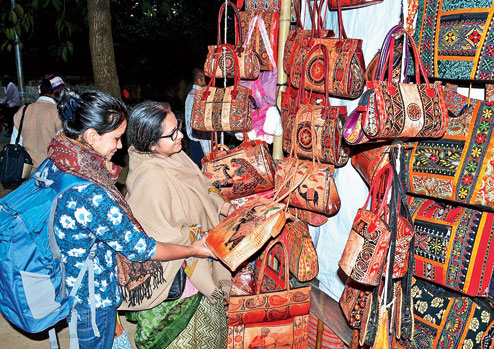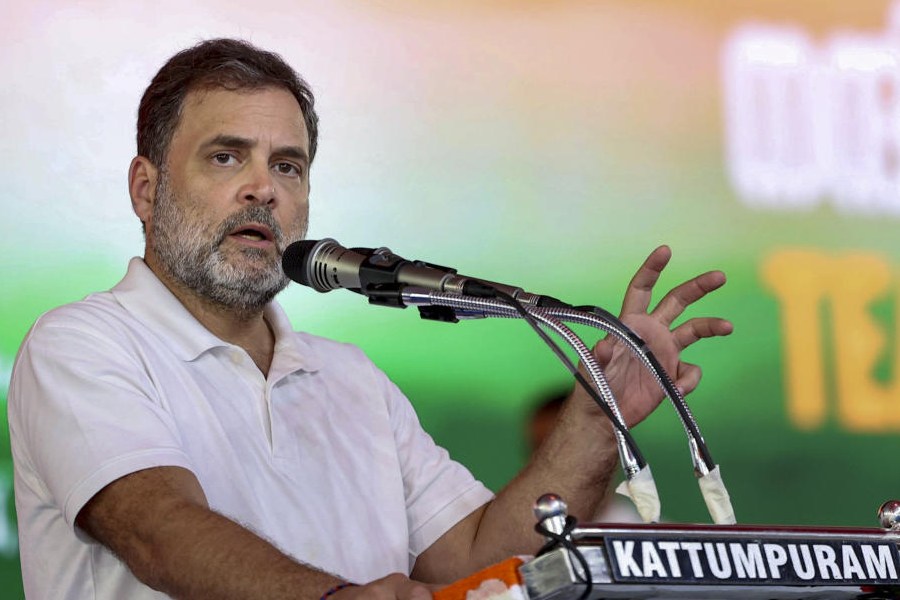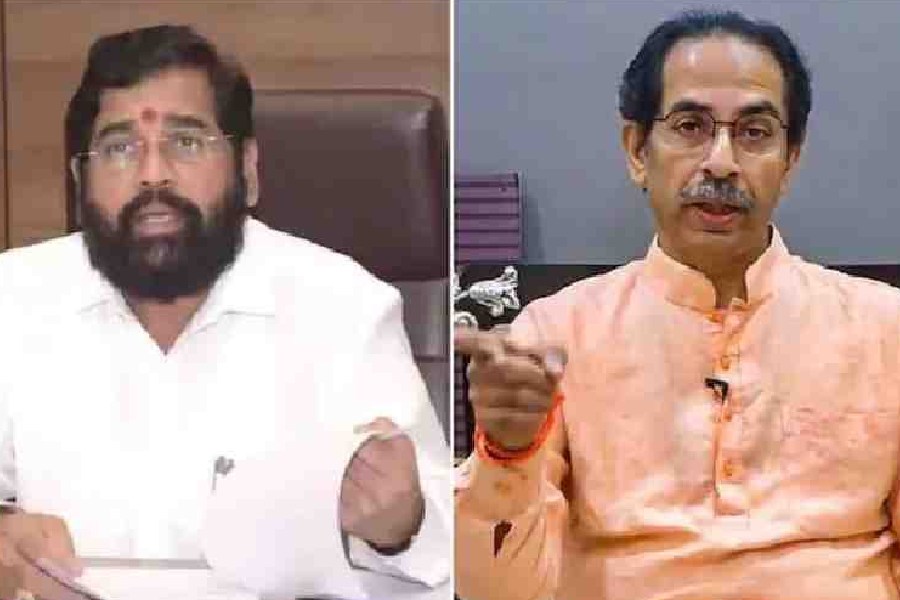Bengal’s handicrafts sector, a major source of earning for lakhs of people in rural areas, is feeling the heat of demonetisation with artisans running short of cash to produce goods and also grappling with a drop in demand.
Be it the manufacturers of the Santipuri taant or the makers of leather products in Santiniketan, the hallmarks of Bengal’s traditional culture, artisans are staring at an uncertain future.
In most cases, the artisans are facing a crisis from another quarter as well. Many of them are involved in agriculture, which too is bearing the brunt of demonetisation.
“Farming helps us meet our food requirements and handicrafts give us a cushion. But if both farming and artwork are affected, how will we survive?” asked Haradhan Pal, who runs a leather factory in Bolpur.
Although the government is trying to help farmers, no step has been taken so far to ease the problems the artisans are facing.
“In the absence of large industries, the handicrafts sector plays an important role in rural Bengal. Demonetisation has rendered so many people jobless in the districts,” an official said.
The impact of the demonetisation drive on some handicrafts industries:
Nadia handloom
♦ Product: Shantipuri taant sari
♦ Novelty: The handloom saris are famous across the country for their design and style.
♦ Situation: Nearly 30,000 weavers in Nadia’s Phulia and Shantipur are going through a rough patch as the demand for the taant sari has nose-dived.
Weavers in the 1,000-odd workshops in the two towns are being forced to work for as less as Rs 25 a day. A month earlier, their daily wage ranged between Rs 250 and Rs 500.
Taant sari designer Biren Basak said: “The cash crunch has resulted in an alarming drop in sales.”
He said the daily sale of saris at his workshop had come down to Rs 30,000 from Rs 1.5 lakh. “I cannot pay full wages to my weavers,” Basak added.
A district official said Basak owned the biggest workshop in the area. “If he has been affected to this extent because of demonetisation, one can imagine the condition of the unskilled and semi-skilled weavers,” a Nadia official said.
Weaver Mintu Basak said: “In the past month, there have been days when I received a wage of Rs 25. I had to accept the meagre amount as I have to run my family.”

Santiniketan leather works
♦ Product: Leather goods
♦ Novelty: Vegetable tanned leather and touch dyeing are used to prepare bags, jewellery boxes and showpieces.
The products are popular in foreign markets, including in the US and Japan. The products have got a geographical indication (GI) tag.
♦ Situation: The trade is gasping for breath as demand has dipped since the second week of November. Many small factories have been forced to lay off workers.
In Santiniketan, there are around 120 leather factories with a total employee strength of 2,500.
“In the past one month, around 1,000 artisans have lost their jobs,” a factory owner said.
Demand is usually high during the year-end. This year, there has been a lull in the factories because of lack of
orders from outlets in Calcutta and other parts of the country.
Haradhan Pal, the owner of a leather factory in Sriniketan, said: “The demand for leather items has fallen so sharply that I had to sack six of my eight workers.”
Artisans said their income had dropped.
Goutam Mahara, an artisan in Surul village who specialises in making handbags, ornament boxes and wallets, said: “I used to earn Rs 300 a day. Now, my income has come down to Rs 100. If the situation does not improve, I will have to quit this profession.”
Debabrata Sengupta, the secretary of the leather manufacturers’ association in Santiniketan, said: “The industry depends heavily on cash transactions. Starting from buying raw materials to delivering finished products, all payments are made in cash.
“As the demand for the products has decreased considerably, factories have been forced to reduce production, resulting in job cuts,” Sengupta said.
Snehamoy Chakraborty
and Subhasis Chaudhury











